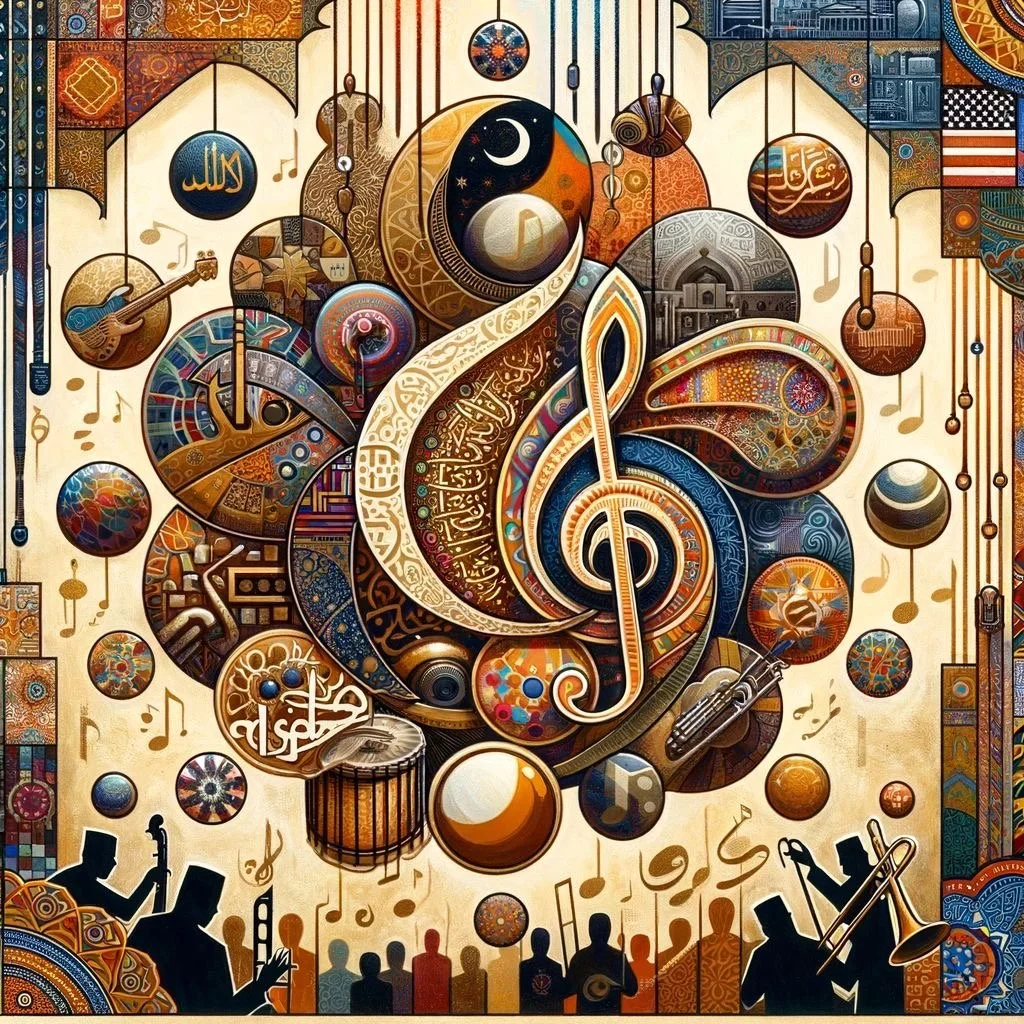the mosaic project
is a chance for Muslims for Progressive Values to convene local scholars, cultural producers, activists, musicians, and nonprofit representatives in an exploration of how music manifests in existing Muslim communities in Los Angeles (and nationwide), and how Muslim American cultural producers understand and interpret their various diverse traditions in the musical work they listen to, create and produce. This project will culminate in a staged event for the Los Angeles public featuring a panel discussion fused with musical performances that feature a diverse and rare glimpse into the inner workings of Muslim American musical cultures.
why a mosaic?
A Mosaic is the art of creating a whole from and with an assemblage of small pieces of diverse, colored materials. The Project draws from the incredible diversity of Muslim American stories and histories to present a picture of contemporary Muslim America through music, songs, spoken word, rap, jazz and dance.
Why Advocacy Through Art?
Cultural pathways outside of “religious spaces” are particularly important, but especially so for Muslim Americans, as they offer the opportunity to share heterogeneous perspectives, engage in difficult debates, share creativity, confidently speak up, and contribute as individuals (outside of the community’s interests in its public portrayals).
Phase I of the Mosaic project
It was a wonderful afternoon of nourishment for the brain and heart with history, genre bending musical performances, and culture. The vision of the Muslim Musical Mosaic Project was to develop an authentic American tradition that would create a positive emotional memory for a community that has, and continues to be, demonized and marginalized, and doing so by paying homage to the various traditions and inspiring unity.
A six-member cohort made up of historians and musicians of diverse cultural backgrounds gathered over the months to co-create original pieces and produce works that stretched our musical expressions, while staying anchored in our heritage.
Muslim for Progressive Values’ founder and president gave the opening remarks before the program began with an anchoring of the project’s vision with the historical and anthropological contributions of Muslims to America’s music culture. Alfred Madain’s presentation, “The History of Gnawa Music” introduced the historical journey, beginning with the roots of Sufisim and the musicality of this spiritual practice and its evolution to Gnawa, created by West Africans enslaved in Morocco.
LuFuki’s presentation, “Black Muslim Influence on Music in America” connected the evolution of songs from the enslaved in America to what we know now was Blues, Jazz, Funk and Hip Hop. It is said that one-third of the enslaved individuals brought to the United States were Muslims, and a link can clearly be drawn in the intonation of the field holler or field call of the enslaved to the distinctive West African Muslim prayers. LuFuki delved into the lives of Muslim jazz musicians and how their conversion to Islam offered them the opportunity to free themselves from the religion of their enslavers. Additionally, in learning Arabic and speaking Arabic, these early Black American Muslims were allowed into spaces that were off limits to Black Americans, but not Black foreigners during the Jim Crow era.
The musical performance of Blues Salawat was Tazeen Aub’s form of spiritual expression in Arabic over a blues track, followed by Ani Zonneveld’s song “In My Soul”, a new genre she refers to as Islamic Hymns. The song’s lyrics are inspired by a poem by a 7th century female Muslim Iraqi saint, Rabi’a al-Basri, set to her original composition in the classical genre. The song begins with:
“In my soul there is a temple, a shrine, a mosque, a church where I kneel.
Prayer should bring us to an altar where no walls or names exist”
Aiman Khan performed “Ya Rahman, Ya Rahim” which translates to “the merciful and the compassionate”, followed by a performance by Farah Mitha “One Love, One Heart” a song developed using a percussive rhythm from the Nubian tradition.
The event concluded with a brief question and answer session, which allowed the cohort, and Ani Zonneveld in particular, to address the censorship of the arts in Muslim communities in the United States and Europe, a topic that will serve as the foundation of Phase 2 of the project.
Watch the Performances from Phase I of the Mosaic Project
This project was made possible with support from California Humanities, a non-profit partner of the National Endowment for the Humanities. Visit www.calhum.org.





























